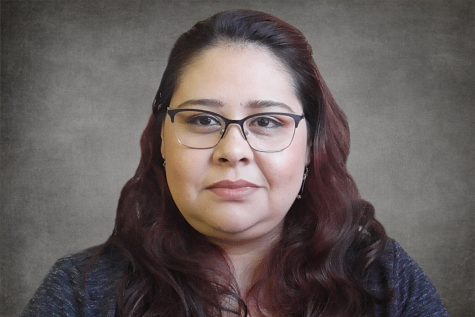Rape threat spoils college experience
Dec 5, 2018
Talking about sexual assault is extremely uncomfortable, but as the cases of student rape on college campuses continue to rise, having that conversation becomes a necessity.
Rape and sexual assault are more common than we think and even though some progress has been made in recent years, it is still surrounded by a cloud of impunity and silence.
According to recent studies, one in four college women will be raped during their college years. That means that we are seating in classes next to victims and rapists.
However, we’ll probably never know who they are — victims are usually too ashamed to admit it.
Sexual assault/harassment is not just rape — it could also be inappropriate touching, sexual jokes, lewd or obscene comments or gestures. Exposing body parts, showing graphic images, unwelcome sexual emails, text messages, or phone calls also fall into the category.
Unfortunately, as it’s commonly understood, most of these cases will go unreported and unpunished.
Usually because college authorities are not doing enough to prevent this abuse from happening. Often, women on campus feel like second-class citizens.
A suspect was arrested and transported to the Martinez Detention Center Oct. 15 following an incident of domestic battery against a woman on campus and barely a word was said.
Contrast that with two students who were robbed on a street adjacent to campus, which prompted awareness alerts via email and text from Police Services.
Also this semester, two of the five finalists for a top administrative position had a history of violence toward women.
This only reinforces the belief that our college, like many others, has a lack of empathy toward women’s safety.
A public forum was held to get to know the finalists and they all were polite and educated.
However, congeniality is a common trait of many predators.
Rape and sexual assault are crimes of power and control.
There are many aggressors with well-paid jobs, who wear a suit and tie to work that are generally admired by their colleagues.
One of the reasons sexual violence goes unreported, especially on college campuses, is because victims fear retaliation from their abusers.
If the perpetrator is someone who has control over a victim’s livelihood, there is a slim chance of the victim ever speaking up.
A rapist can’t be recognized simply by appearance. However, supporting women who do make claims will expose the predators among us.
Somebody who violates women more than once is more likely to do it again if they got away with it before — especially if he or she is a position of power.
Just imagine how many survivors of sexual crimes are triggered by the fact that because so many crimes go unreported, we are essentially living and working with people who may become violent predators.
We ask administrators and people overseeing employment at Contra Costa College to be vigilant, to not expose students, faculty and staff on campus to sexual assault, harassment or any other kind of violence.
We deserve better.



thomas sullivan • Dec 9, 2018 at 8:00 pm
On the subject of rape, it is not that hard to avoid on campus. The great majority of campus rape allegations involve two people who are very intoxicated. Use common sense.